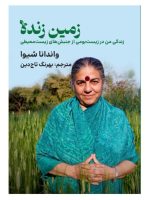
Mostafa Mastour is among the great contemporary writers who has addressed serious aspects of human life in his works, and has raised essential questions on human and the nature of existence, and provided, to the extent of his ability, ideologically-unbiased answers to these questions through the words of the characters in his stories. One of the issues that strike the reader of Mastour’s stories is the similarity of the themes of his stories to the existentialist perspectives and existential concerns. In stories by Mastour, such topics as instability of the world, uncertainty in beliefs and faith, contemplation of the existence of God, human anxiety and loneliness, fear of death, and meaningfulness or meaninglessness of life are dealt with. Such issues have been constant concerns of human beings, regardless of their historical and geographical settings.
The present research aims to investigate the existential concerns that have been expressed in stories by Mostafa Mastour and how the writer has answered those questions.











